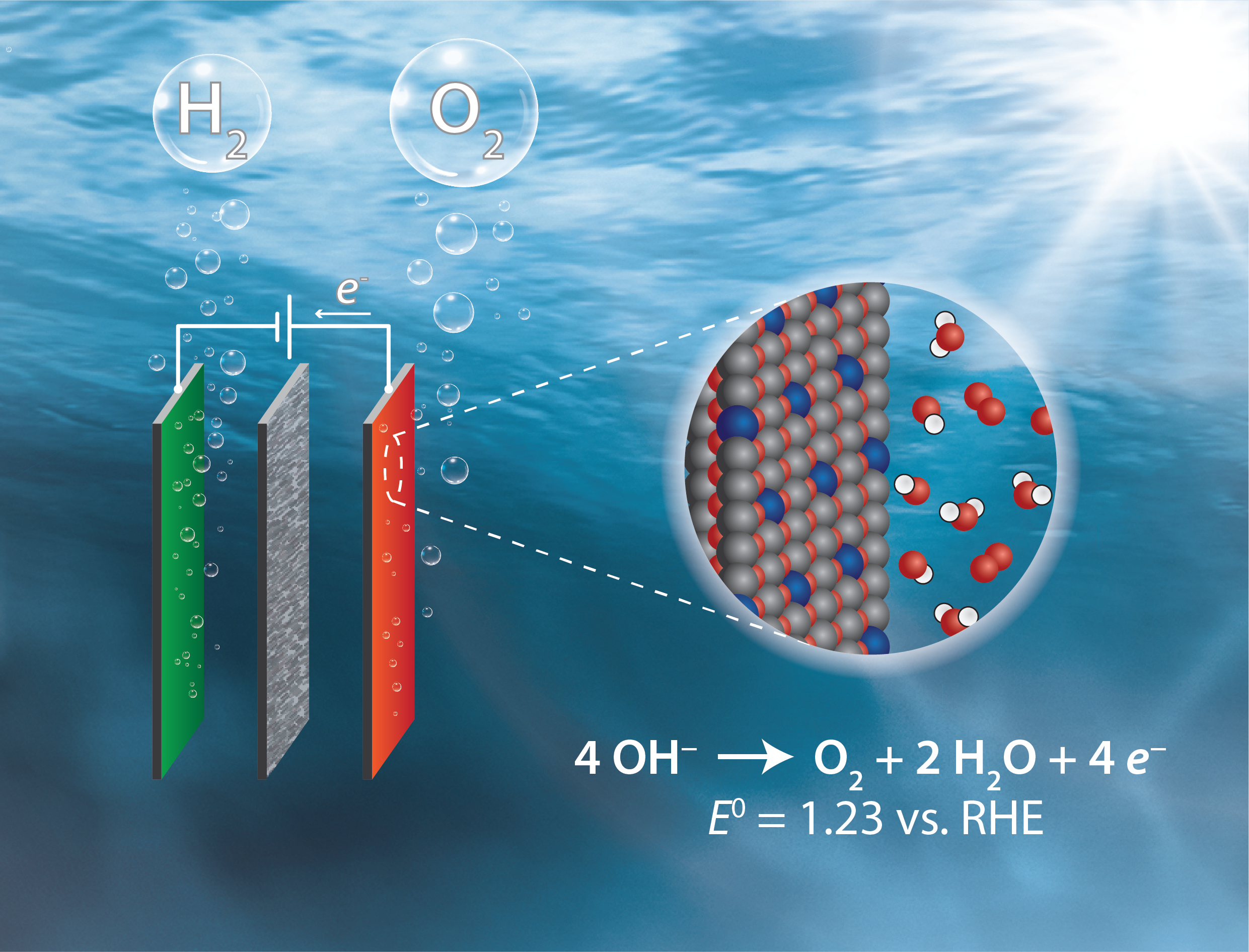Water splitting with electricity is a key technology for renewable energy storage. When a voltage is applied to two electrodes immersed in water, the water splits into oxygen and hydrogen gas. This process is called electrolysis. The hydrogen gas can be captured and stored. It can be used in fuel cells, or for the production of sustainable chemicals.

However, electrolysis is not an easy process. The efficiency is low, and electrode materials degenerate easily. The most difficult part of the water splitting process seems to be the formation of oxygen at the electrode, where a high overpotential is needed. Therefore, there is a quest for inexpensive materials (catalysts), that can help to do this part of the water splitting in a more efficient way.
New catalysts
Qiuhua Liang, PhD candidate in the DIFFER group Electrochemical Materials and Interfaces (EMI), is one of the researchers who are looking for these new catalysts. The EMI group focuses on the fabrication, characterization, and optimization of photo-/electrochemical materials and interfaces. EMI combines experiments with modeling and simulations in a multidisciplinary approach.

Liang examines the enhancement of the oxygen formation (oxygen evolution reaction) by the semiconductor zinc oxide, which is abundantly available, doped with various metal atoms. She performed calculations on a substantial number of possible structures and bonding geometries.
Promising dopants
For pure zinc oxide the calculated overpotential was 1.0 V. When dopants were used the overpotential decreased to 0.9 V for manganese, 0.8 V for copper, 0.6 V for iron, 0.5 V for nickel, down to 0.4 V for cobalt. These results implied that both cobalt and nickel are promising dopants for increasing the activity of zinc oxide-based electrodes for the oxygen evolution reaction.
Liang is the first author of the article that was recently published in ChemSusChem, the journal about impactful sustainability research in chemistry. The other authors are Vivek Sinha and Anja Bieberle-Hütter of the DIFFER EMI group and Geert Brocks (Twente University).
More information
Tailoring the Performance of ZnO for Oxygen Evolution by Effective Transition Metal Doping, ChemSusChem, by Qiuhua Liang, Geert Brocks, Vivek Sinha, Anja Bieberle-Hütter
Go to the News page.